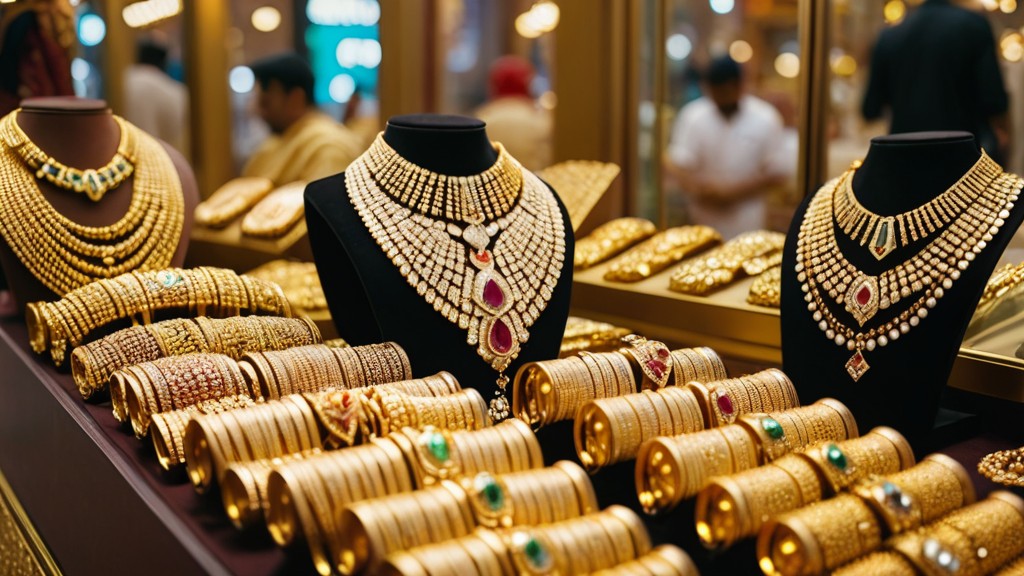Exploring the Souks of Arabia: A Shopper’s Paradise
Exploring the Souks of Arabia The Arabian Peninsula, known for its vast deserts and stunning coastlines, is also home to some of the world’s most vibrant and historic markets—souks. These bustling marketplaces are the beating heart of Arabian cities, where tradition meets commerce, and the air is filled with the scents of spices, perfumes, and local delicacies. Among the most famous are the Gold Souk in Dubai, the Mutrah Souq in Muscat, and other charming markets scattered across the region.
Exploring the Souks of Arabia Let’s journey through these fascinating souks and discover what makes each one a unique shopper’s paradise.

The Gold Souk, Dubai: A Glittering Wonderland
Dubai’s Gold Souk, located in the Deira district, is a must-visit destination for anyone seeking luxury and craftsmanship. Known as one of the largest gold markets in the world, it boasts over 300 retailers specializing in gold, diamonds, and other precious stones.
What sets the Gold Souk apart is its sheer variety—whether you’re looking for traditional Arabic designs, modern jewelry, or custom-made pieces, this market has it all. The shops are lined with glittering displays of necklaces, bracelets, and rings, offering a visual feast for visitors.
Exploring the Souks of Arabia If you plan to shop, be prepared to haggle. Bargaining is an integral part of the experience, and it’s not uncommon to secure a piece at a significantly reduced price.
For more information about visiting the Gold Souk, check out Visit Dubai's official guide.
Mutrah Souq, Muscat: A Blend of History and Charm
Exploring the Souks of Arabia Nestled along the Corniche in Oman’s capital, Muscat, the Mutrah Souq is one of the oldest markets in the Arabian Peninsula. Its maze-like alleys are filled with shops offering a mix of traditional Omani goods and modern wares.
One of the highlights of Mutrah Souq is its collection of silver jewelry, including handcrafted necklaces and bracelets that reflect Omani heritage. Other unique finds include frankincense, traditional Omani garments, and intricately designed pottery.
The souq is also famous for its warm and welcoming atmosphere. Vendors often share stories about their goods, adding a personal touch to the shopping experience. Don’t forget to sample some local sweets and kahwa (Omani coffee) while exploring the market Exploring the Souks of Arabia.
For insights on Mutrah Souq, visit Experience Oman.
Souq Waqif, Doha: A Cultural Hub
Souq Waqif in Doha, Qatar, is a perfect blend of tradition and modernity. This vibrant marketplace is a cultural hub where locals and tourists come together to shop, dine, and enjoy live performances.
The souq is famous for its range of products, from spices, textiles, and perfumes to handcrafted souvenirs. It’s also a great place to buy authentic Qatari items, such as traditional swords and carpets.
What makes Souq Waqif truly special is its architecture. The market has been carefully restored to maintain its traditional Qatari design, with mud-rendered buildings and wooden beams. The evenings are particularly magical, with the souq coming alive with lights and music. Exploring the Souks of Arabia
Learn more about Souq Waqif at Visit Qatar.
Al-Madina Souq, Jeddah: The Jewel of Saudi Arabia
In the historic city of Jeddah, the Al-Madina Souq is a treasure trove of traditional Saudi goods. Located in the heart of the city, the souq is part of Jeddah’s old town, Al-Balad, a UNESCO World Heritage Site.
Shoppers can find a variety of items, including abayas, spices, and traditional Saudi coffee pots. The market is also a haven for art lovers, offering calligraphy works and handmade crafts that reflect the region’s cultural heritage.
The souq’s charm lies in its authenticity. Unlike modern malls, Al-Madina Souq retains its historic feel, making it a favorite for those seeking a genuine shopping experience.

Key Shopping Tips
- Bargain Like a Local: Haggling is a common practice in most souks. Start with a lower price and work your way up.
- Explore Early or Late: Visit in the morning or evening to avoid the midday heat and enjoy a less crowded experience.
- Carry Cash: While many shops accept cards, smaller vendors often prefer cash.
- Respect Local Customs: Dress modestly and be courteous to vendors.
